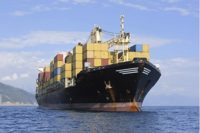The International Association of Ports and Harbors (IAPH), Japan, announced plans to integrate the World Port Climate Initiative (WPCI) in a wider World Ports Sustainability Programme (WPSP) to extend the scope from climate action to a full range of sustainability port development challenges.
By engaging regional port associations and international port-related organizations, this new program will identify how the global port sector can contribute to the 17 Sustainable Development Goals (SDGs) adopted by the United Nations in 2015, covering biosphere, society and economy. By incorporating “smart port” concept and “digitalization,” the WPSP can assist ports in increasing the efficiency and sustainability of their day-to-day port operations.
“A lot of attention has rightly been paid to the environmental pillar, but true sustainability is about integration with the economic and societal dimensions,” says Santiago Milà, president of IAPH. “Historically, IAPH, at the forefront of developments for ports, took on a pioneering role in establishing in 2008 the World Port Climate Initiative (WPCI), which it is now extending into a World Port Sustainability Programme.”
The main role of ports is to add value to the economy, and should strive to design very efficient logistics chains. These logistics chains should eventually contribute to a sustainable growth based on 3 pillars—social, environmental and economic pillars.
The WPCI developed a number of practical tools, including guidance document “Carbon Footprinting for Ports,” a dedicated website for Onshore Power and the Environmental Ship Index (ESI), which helps ports identify and reward clean ships.



